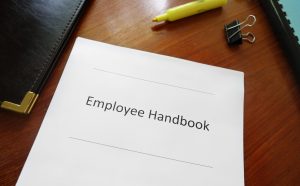 Following his recent arrest for DUI (called ‘OVI’ in Ohio), Bob Huggins resigned from his position as the men’s basketball coach at West Virginia University. His situation is illustrative of many high-profile individuals who have lost jobs due to a DUI/OVI. But it is not only high-profile individuals who face employment consequences for OVI cases. We are frequently asked the following questions about OVI cases and employment.
Following his recent arrest for DUI (called ‘OVI’ in Ohio), Bob Huggins resigned from his position as the men’s basketball coach at West Virginia University. His situation is illustrative of many high-profile individuals who have lost jobs due to a DUI/OVI. But it is not only high-profile individuals who face employment consequences for OVI cases. We are frequently asked the following questions about OVI cases and employment.
Do I Need to Report My OVI to My Employer?
This is actually a two-part question. The first part is whether you need to report to your employer that you were charged with OVI. The second part is whether you need to report to your employer that you were convicted of OVI. The answer to both parts is: it depends on your specific employer.
Some employers require employees to report only convictions, not charges. Other employers mandate that employees report only certain types of charges and/or convictions, and some employers do not have any reporting requirements. If you have an employment contract, collective bargaining agreement, employee handbook, or other document outlining the terms and conditions of your employment, you should read it closely so you know what reporting is mandated by the employer.
If you do not have a document outlining the terms and conditions of your employment, you will have to use your judgment in deciding whether to report an OVI charge or conviction. Your judgment may depend on the stability of your job, your relationship with your supervisor, what action has been taken against other employees with OVI cases, and whether the outcome will be worse if you fail to disclose the OVI.
How Will My OVI Case Affect My Employment?
It depends on your situation. Ohio is an ‘at will’ employment state. Unless you have an employment contract or collective bargaining agreement, you can be fired for any reason. The employment consequences of an OVI may be spelled-out in the document outlining the terms and conditions of your employment. If not, the consequences are completely at the discretion of your employer.
There are some occupations for which an OVI may have a special impact. Pilots and bus drivers face unique employment consequences, as do drivers for Uber, Lyft, and taxi companies. Commercial drivers may have their CDL disqualified for an OVI conviction or license suspension. Employees with company cars may face employment termination, as most fleet insurance policies will not cover drivers with OVI convictions. Individuals with professional licenses may face repercussions with the licensing board. Members of the military, law enforcement, and other ‘civil service’ careers may also be confronted with employment ramifications for an OVI.
Beyond the charge/conviction itself, an OVI case creates some circumstances which may impact your employment. First, a license suspension may impede your ability to perform your job or commute to work. Second, a jail term or Driver Intervention program may cause you to miss work. Third, the use of an ignition interlock device or yellow license plates may implicitly notify your employer of your OVI.
Can a Lawyer Help?
If you are charged with OVI and concerned about its impact on your employment, hiring an OVI defense lawyer may help. An attorney cannot change your reporting requirements or the employment consequences associated with an OVI charge or conviction. However, an effective OVI defense lawyer can hopefully help you avoid the OVI conviction and related consequences which threaten your employment.
 Columbus OVI/DUI Attorney Blog
Columbus OVI/DUI Attorney Blog

